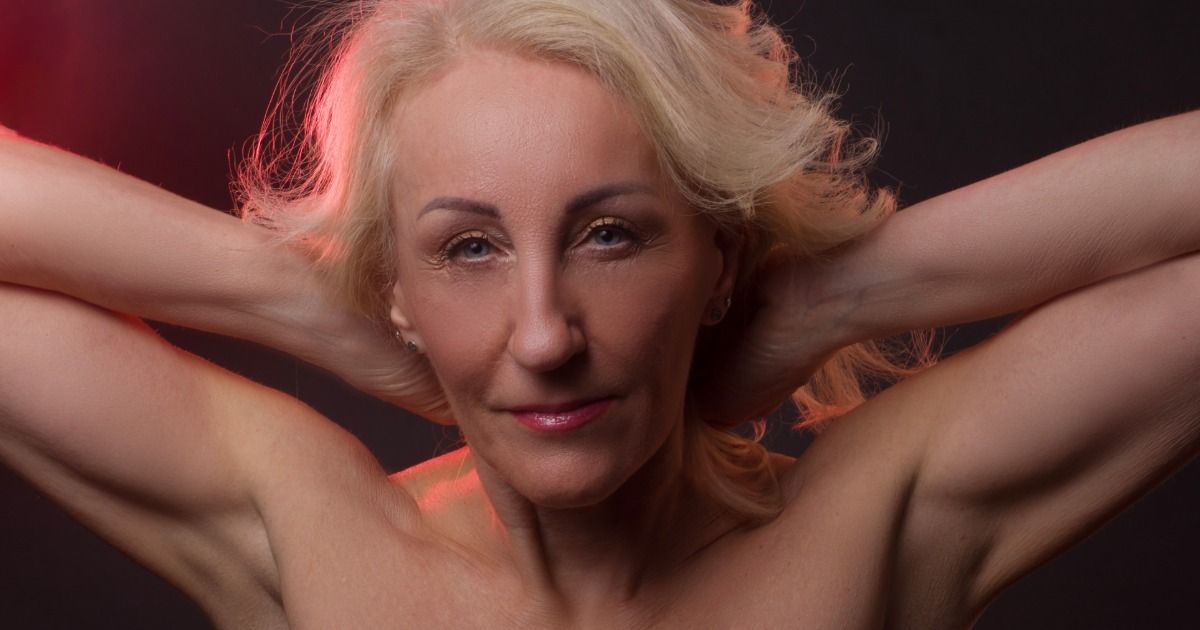Why is it that some women get horny as they get older? It’s a fair question. Especially since so much of the literature is telling a woman that she’s all dried up and that sex goes straight downhill once she hits menopause.
Some doctors even flat-out warn their women patients that once they reach menopause, their sex life is over. As a sexuality professional with a focus on older peoples’ sexuality, I couldn’t disagree more with this advice about older women’s sexuality.
The medical model says no, but our bodies say yes
The medical model is outdated when it comes to older women’s sexual health. Let’s take a new look at sexual activity after menopause. An eminent sexuality researcher, John DeLamater, from the University of Wisconsin, critiqued the medical model in the Journal of Sex and Relationship Therapy and found that most sexuality research on older adults focuses on age-related diseases like chronic pain, chronic illness, and hormonal shifts which can certainly be troubling to our sexual functioning.
These physical disorders can all cause problems with our ability to make sex more pleasurable. But they’re not the whole story. We’ve got to take into account the emotional, cognitive, relational, cultural, and psychosocial factors as well as the physical factors for why some post-menopausal women are feeling sexy and others are not.
We are all living longer and that means the number of years of potential sexual pleasure will increase significantly as a result of what we call active life expectancy, or the years with no health-related difficulties doing our regular activities, which includes sex. When noted sexuality researcher Cynthia Graham and her colleagues asked what turns women on and, more importantly, what turns them off, one of the factors women voiced was the fear of an unwanted pregnancy.
Older women no longer have to worry about getting pregnant once they’ve reached menopause (which is defined as 12 months after their last period). And without their periods, older women are spared the constant monthly ups and downs in hormones that used to cause dips in their desire.
Neuroscience offers some clues
Dr. Nan Wise, a cognitive neuroscientist and certified sex therapist, is curious about how the brain operates to create moods and behaviors. Her research addresses some of the gaps regarding the neural basis of human sexuality and she believes: “There’s a very good explanation for why some women become more horny after menopause. As our levels of estrogen drop, the amounts that we have of testosterone in ratio to the estrogen actually end up being higher. It’s entirely possible that women — if they feel it to be part of their sexual map — can actually be hornier post-menopause than before.”
Testosterone doesn’t necessarily create desire where it wouldn’t exist. Testosterone primarily helps with a sense of vitality, improves bone strength, and expands muscle density. Changes in testosterone levels are age-related and not specifically due to menopause. Testosterone levels peak for women in their 20s. By menopause, the levels are at half of their peak. The ovaries are continuing to produce testosterone after estrogen production stops, even after menopause. Yet each woman’s hormonal level is going to vary after menopause, and the literature is quite varied and controversial.

Psychosocial aspects of sexual arousal
Looking at the psychosocial aspects of sexual arousal after menopause is another fruitful area to explore. Older women rarely have to deal with child care or raising teenagers (although parents whose college age children are now back at home are experiencing a bit of deja vu).
As new stages of life and new relationships emerge, new excitement for sex can also emerge. Many older adults have found that their interest in sex at a later age is connected with improvements in their physical and mental health Sex can actually reduce both physical and mental health problems associated with aging.
For older women maintaining their sexual life, their self-esteem was significantly higher] than those who were not having sex. For some, leaving an unhappy relationship and beginning a new one at a later age can allow for a re-discovery or even a first-time discovery of their full sexual potential after years of dormancy or disinterest. Horny and menopausal women have greater awareness of the potential for pleasure.
For many older women, penetration can become painful and uncomfortable as the vaginal lining thins and becomes less supple. Outercourse, or any kind of sex that you can imagine that doesn’t include someone penetrating someone else’s vagina, has become a preferred way of sharing a sexual moment. Think outside the box, literally.
If you or your partner think the only way to have fun sexually is with a penis or a dildo in a vagina, think again! Oral sex, anal sex, toys, nipple stimulation, kissing, massage, dry humping, sex toys, autoeroticism (better known as masturbation, either solo or shared), fantasies, tickling, bondage, and a whole continuum of sexual exploration that doesn’t include penetrating the vaginal canal. As Pillai-Friedman and her colleagues have noted, combining outercourse with kink can enhance an older couples’ sexual pleasure.
Exploring cultural differences
Dr. Melanie Davis, a sexuality counselor specializing in older adults is mindful of cultural differences: “Many older adults stop worrying about every sag and scar after a certain age. Black elders don’t necessarily see age as a reason to go sexually fallow, so their high desire may be a continuation of the norm for them.” A 94-year old Black woman in one of my workshops told me she had four boyfriends (and her friends all concurred).

